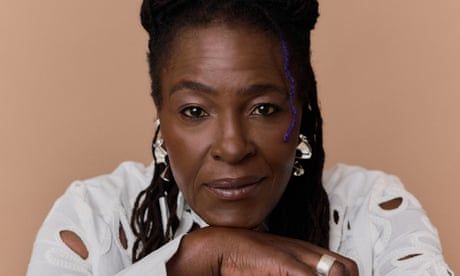
The actor on playing Lady Bracknell at the National, the groundbreaking gay love story of Mr Loverman, and getting married on stage
Born in Enfield, north London, in 1966, Sharon D Clarke is an acclaimed stage and screen actor. She has won three Olivier awards – for Amen Corner at the National Theatre, Caroline, Or Change at the Playhouse and Death of a Salesman at the Young Vic. After prominent TV roles in Holby City and Doctor Who, she’s currently on screen opposite Lennie James in an eight-part BBC adaptation of Bernardine Evaristo’s novel Mr Loverman and will star in forthcoming Channel 5 detective drama Ellis. Now, Clarke is preparing to play the redoubtable Lady Bracknell in the National Theatre’s production of The Importance of Being Earnest, which director Max Webster is staging with his signature visual boldness, and with Black actors in its central roles.
Oscar Wilde’s play has a bit of a fuddy-duddy reputation. Did you have preconceptions about it?
Oh absolutely. I always saw it as part of the white canon of theatre; I never looked at it with me in mind at all. Then when I got the call from Max Webster asking if I’d be interested, I was like, “Hell yeah!”, because if someone is thinking outside the box in that way, I’m all over it. A lot of people are used to the play being a certain way; this will be totally different, so get on board! And casting [Doctor Who’s] Ncuti [Gatwa as Algernon] is genius. I think it will bring in a new generation who might have thought the play wasn’t for them. Especially all the Whovians – they’re gonna be coming in their droves.
Is it exciting, seeing roles like these open up to Black actors?
This shift has been a long while coming, and it’s a wonderful thing to see – especially when it comes to period pieces. Bridgerton has done so much to show that they can reflect our multicultural society – and it took an American to do it, because they don’t have the same reverence towards these stories. But I have to see it continue. I don’t want to be in a situation where I get all excited about a couple of years where we had all this new Black work come in and then it all disappeared.